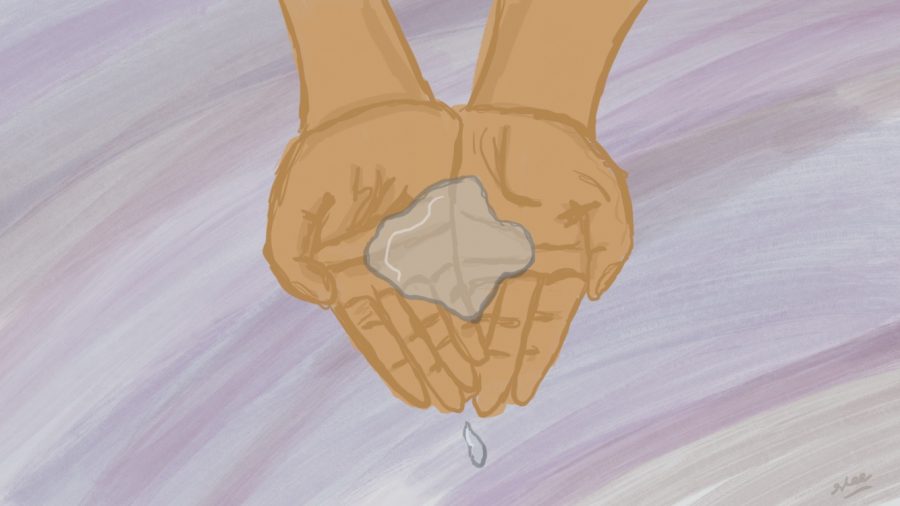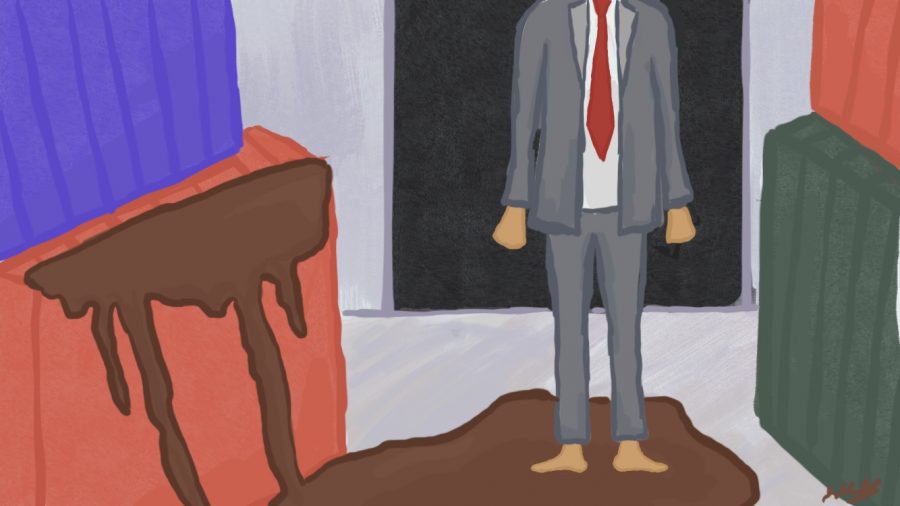There are things most people will never have to learn. How to live with only the clothes on your back. Where to look for unburnt garbage and the fastest way to load it onto the wheelbarrow. And while looking through your haul on the way to the landfill, how to tell which expiration dates are more like suggestions than rules.
How to beg by the sidewalk while sending your kids out to tap on car windows during a traffic jam. Only to watch their rote pleading be rebuked by the forward-facing stares of the drivers. How to dodge out of traffic when the red light turns green.
Why a father might spank his daughters for not making enough money from begging that day. Why a mother might sell a baby or two to the family next door.
These are things most people should never have to learn.
My uncle learned some of them.
Here are some anecdotes about Uncle:
*
The firstborn of 11 brothers and sisters, Uncle spent the pre-dawn hours before school selling his mother’s rice and the after-school hours selling his father’s pastries. He’d cycle to the market on his father’s oversized bike, shifting from side to side to reach the pedals and make the return trip home all before 6:30 a.m. After school, the route he walked to sell pastries was three miles long.
All the effort made just enough money to buy the ingredients for the next day’s batch.
*
The first time Uncle landed in the big city, he slept on buses and washed them for the drivers. He used the money to rent a bedroom, one already filled with three other people. He ate leftover porridge and noodles from the hawkers he helped at his second job.
What’s the hungriest you’ve ever been? Can you even think of the last time you were hungry enough for it to be memorable?
On one particularly slow day, Uncle bought a piece of white bread. Seeing as it would be his only meal for the day, he ate half for breakfast and kept the rest in his back pocket. He couldn’t leave it at home, his roommates were out for themselves.
After a day of hard work, Uncle thought he could at least enjoy the small luxury of half a piece of white bread. When he checked his back pocket, it had been flattened to nothing. How could he satisfy his hunger?
He took an empty can, filled it with water and crushed the bread into it with his hands. He stirred the slurry with his fingers and gulped it down.
*
Uncle told me this story when we went to visit his parents’ graves. It’s called Double Ninth day in English — when extended families go to visit the graves of their ancestors. He would repeat the story at next year’s visit, but it didn’t lose its impact. Even Mother hadn’t heard it before.
I imagined the white dough disintegrating in the tepid water, Uncle’s finger swirling the cloudy liquid and finally swallowing to satisfy his hunger. It is one of the things people should not have to learn how to do.
After he told the story, we laid out offerings by the graves of the grandparents I never knew. Oranges and pears, steamed buns and sticky rice wrapped in bamboo leaves were brought out of Tupperware and grocery bags. Red saucers surrounded the small altar built into the pair of graves. We left the food in the graveyard pristine and untouched, for tradition dictates that it is left for the spirits.
Our offerings reminded me of how, just before we left for the graveyard, Uncle had everyone over for lunch at his mansion.
*

What’s the longest walk you would put up with? Not a hike, just walking to get somewhere. 20 minutes? 30? I’d say 40 minutes would be the longest I’d walk if there was no other option besides an Uber.
With no money to spare for any public transport — even the minibuses piled high with passengers who spilled out of the open door frames — Uncle didn’t mind walking for an hour and a half to meet a friend. When he got to his friend’s house, a note read: “Off to vacation.”
Uncle had to walk back home.
Along the underdeveloped roads of a rapidly urbanizing third-world country, hunger and thirst plagued him once again. But this time he had nothing. On that lone, open road, starving, parched Uncle happened upon one of the city’s many mosques. It was his only option.
He knelt down by the entrance and bloated himself on the water where people used to wash their hands and feet before prayer.
When the water inevitably passed right through him and left his stomach empty, he would stop at another mosque and do it all over again. All the way home. This was more than 30 years ago. The country has never had clean tap water.
*
Mother mentioned this story at the gala dinner celebrating the release of Uncle’s biography. It was held in the ballroom of Uncle’s hotel.
In attendance I recognized a police commissioner, a politician and foreign businessmen. After reading the book like I had, I wondered what these high society types thought of him. What they thought of this man who used to smoke his cigarettes down to the filter, and now puffed on cigars. This man who was now spoiled for choice as to which bottle to crack open, and drank in measured sips rather than desperate gulps.
*
What’s the most you’ve lost on a bet? At most schools, losing a bet with your friends costs you petty cash or just a reputation. At slot machines, people piss away their money and pull the lever like they’re flushing the toilet. And everyone’s probably heard cautionary tales of people who lose their cars or their homes to addiction.
In his youth Uncle worked at the lottery writing down the winning numbers, watching people bet this way. People who let fate decide if they deserved their hard-earned money. He would never be so careless, but in a way Uncle became a betting man himself.
He left his village and rode a ferry to the capital, arriving penniless in the big city armed only with the hope of finding a job. Perhaps it was his battle with poverty that motivated him to go above and beyond whenever he did.
This first gig as a door-to-door salesman saw him take another risk, being the first of his colleagues who dared to make deals in the bad part of town. Yet after rising to a managerial position and earning a hefty salary, he quit. All because he knew that he wanted to be in control of his own destiny, not an employee.
At his next job application, he impressed the foreman of a detergent factory by advertising that he would work below minimum wage and forgo employee benefits. In those days, in those factories, regulations were more like guidelines. He was hired immediately.
Why, you ask? To get an insider look at the industrial process of course. Within a few months, Uncle had all he needed to start his own factory, and poached a company man from his former employer to assist him. Their business took off, and in another world it might have satisfied him. Until a financial crisis shut their small business down.
By the time Uncle could afford to make a bet that big again, he’d just spent the last of his cash buying a suit, a suitcase, dress shoes and a tie. In short, he planned on bluffing.
He claimed he had experience in international trade (this was his first deal), had already prepared a warehouse (couldn’t afford to rent one) and that he’d pay his supplier back exactly on time (probably the most easily made promise in business — also, the only thing that turned out to be true).
It only took a few months before Uncle’s new trade business bought him his first house, his first car and allowed him to start his first joint venture. With investors, he raised just enough money to buy his first shipment of luxury goods: chocolates. He’d once again bet nearly everything on a chance to make more. And once again it worked. Two shipping containers full of luxury chocolate were on their way.
Until the government got a hold of it.
Falling prey to the excesses of bureaucracy, Uncle had to sit there and take it. For two months the goods he staked his life on mouldered in the cramped lockers of the customs agency. By the time his pleading bore fruit, Uncle’s melted chocolate was leaking outside of the shipping containers.
With no chance of salvaging it, the investors wanted their money back. Uncle had none to give. They took his shoes, his suit, his suitcase, his tie, his car and his house. Uncle had given it all away, just to make sure he wouldn’t owe any of them a debt.
Back to renting rooms and riding bikes.

*
Some of Uncle’s career highlights and lowlights:
Financed a ginger farm. Destroyed by pestilence. Invented a home water filter. Nearly lost a finger in the workshop. Competitively bred doves. Formed a national worker’s association. Taught subsistence fishermen how to turn a profit. Falsely accused of being unsustainable. Turned his love of cars into an auto dealership. Turned his love of cars into a resort. Built a hotel. Currently building a mall overseas.
*
Something about people who have to learn to survive upsets us.
It becomes necessary to ignore them, so we can get on with living, not surviving.
As a kid I learned how to stop looking out the car window when a barefoot mother came by with her baby to beg. As a first-year I recently learned how to look away from homeless people shambling across the subway cars in search of change.
Uncle didn’t learn most of the things other people did. He quit formal education by fourth grade and made the marketplace his home. He learned many of the things people shouldn’t have to: how to survive penniless in the capital, armed with nothing but the will to succeed.
While he learned how to survive, he didn’t stop dreaming of how to live. While he learned how to live, he figured out how to help others do the same. He did things people shouldn’t have to in order to build things most people couldn’t.
In some ways the successes are less personal than the failures. You might find similar accomplishments elsewhere, on some rich person’s Wikipedia page.
But whenever I look at Uncle, and think about what he’s built, I see something else. I see the man who first showed me how to make my thumb disappear. I see the first time I visited his mansion, after not seeing him at any reunions for more than five years. I see all the friends and family he’s folded into his work, a legacy he’s passed on to his children, and one that I know his grandchildren will keep alive.
I remember being awestruck that I even knew someone like him. I remember being almost intimidated by his wealth, and then contemplating what it meant that so much of his suffering wasn’t even necessary to earn it. These moments helped him cope with loss for sure, but sometimes there aren’t any lessons to be learned from random catastrophe. Other than to keep going, I guess.
I remember thinking about what people say they deserve and what it takes to make such statements true.
Email Nicholas Dharmadi at [email protected].






















































































































































